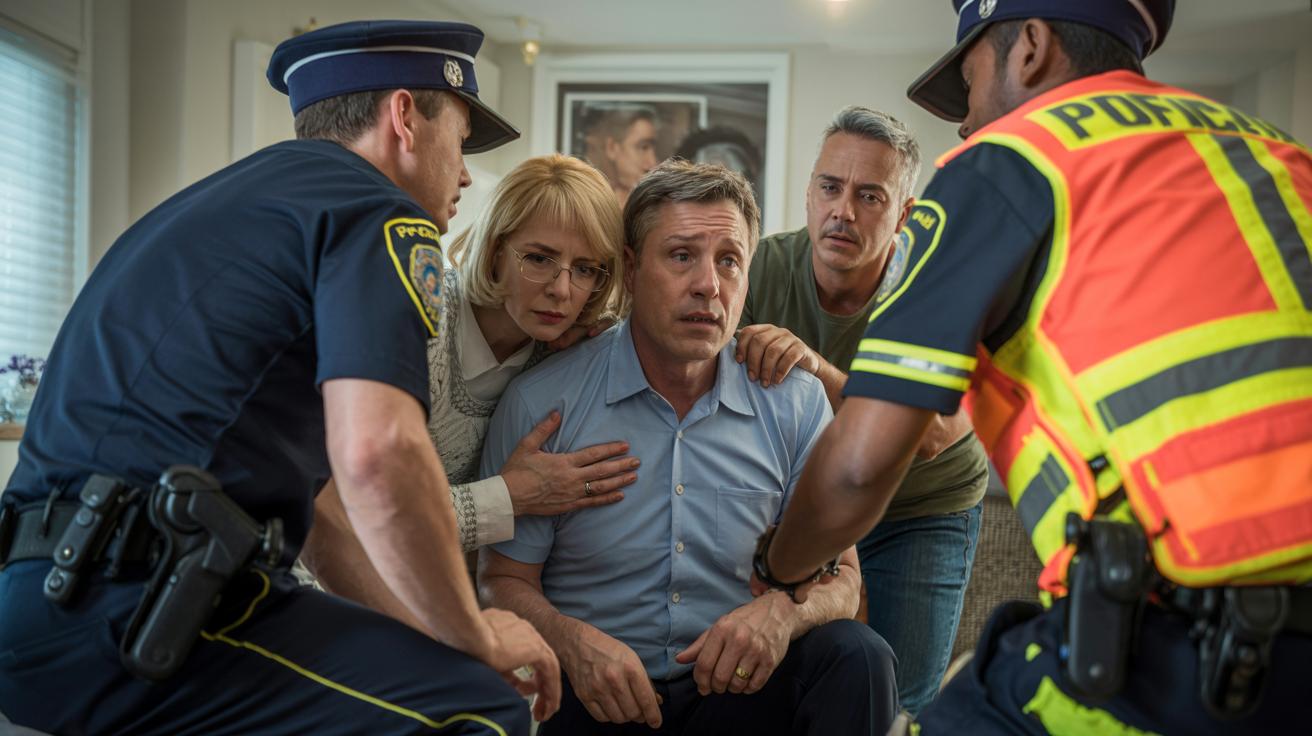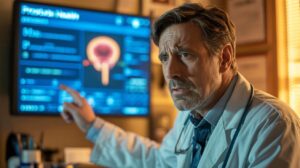What You Need to Know
- 🚨 Sudden Onset: Nestor Montalvo experienced a severe headache and numbness, symptoms that quickly led to a stroke diagnosis.
- ⏱️ Critical Timing: Swift action by paramedics and hospital staff emphasized the mantra “time is brain,” crucial in minimizing stroke damage.
- 🩺 Emergency Intervention: Rapid administration of clot-busting medication and a CAT scan were pivotal in addressing the ischemic stroke.
- 💪 Challenging Recovery: Intensive speech and physical therapy helped Nestor regain his ability to speak and swallow after a life-saving tracheotomy.
- 👨👩👧👦 Family Support: Nestor’s journey highlights the importance of a supportive network in overcoming health crises and cherishing life’s moments.
When Nestor Montalvo woke up one September morning, a severe headache and blurred vision signaled that something was terribly wrong. Initially dismissing the symptoms as a hangover despite not having consumed alcohol, he attempted to stand, only to discover that the right side of his body was numb. His world began to spin, and he collapsed, unable to comprehend what was happening. His wife, recognizing the urgency of the situation, called 911. Paramedics arrived promptly and delivered a shocking diagnosis: Nestor was experiencing a stroke. This revelation marked the beginning of a harrowing journey through emergency medical interventions and a long road to recovery.
The Sudden Onset of Stroke Symptoms
Strokes often strike without warning, and in Nestor’s case, the symptoms had already set in by the time he woke up. Common signs include headaches, blurred vision, and numbness, particularly on one side of the body. These symptoms can easily be mistaken for other conditions, leading to dangerous delays in seeking treatment. Nestor’s experience underscores the importance of recognizing the early signs of a stroke. Time is critical when it comes to strokes, as medical professionals frequently emphasize that “time is brain.” The quicker the response, the better the chances of minimizing brain damage and improving outcomes for the patient.
For Nestor, the initial misinterpretation of his symptoms could have led to devastating consequences. Fortunately, his wife’s swift action in contacting emergency services ensured that he received immediate medical attention. This quick response played a crucial role in his survival and subsequent recovery. Understanding the symptoms and acting promptly can make all the difference between life and death, or between full recovery and lasting impairment.
Emergency Medical Intervention
Upon arrival at the hospital, Nestor was assessed as a potential stroke patient within minutes, triggering the hospital’s stroke protocol. This rapid response was essential, as strokes require urgent medical intervention to restore blood flow to the brain. Ischemic strokes, like the one Nestor experienced, occur when a blood vessel is blocked, depriving the brain of nutrients and oxygen. Without timely treatment, brain cells begin to die, leading to permanent damage.
Doctors quickly administered a clot-busting medication known as TNK and performed a CAT scan to assess the extent of the blockage. These timely interventions helped reduce the severity of the stroke’s impact. Moreover, Nestor underwent a minor procedure to ensure the clot was completely dissolved. This comprehensive approach to emergency stroke care highlights the importance of having well-coordinated medical teams and protocols in place to handle such critical situations effectively.
The Challenging Road to Recovery
Despite the successful emergency interventions, Nestor faced a challenging path to recovery. His vocal cords had collapsed, necessitating a tracheotomy to assist his breathing. This procedure, while lifesaving, temporarily deprived him of the ability to speak or swallow. The aftermath of the stroke further complicated his condition, making it difficult to eat and communicate.
Under the care of Aileen Fairchild, an acute care speech pathologist, Nestor embarked on a rigorous rehabilitation program. For six weeks, he engaged in daily speech therapy sessions and exercises targeting the muscles involved in eating and swallowing. This intensive therapy was crucial in restoring his ability to perform basic functions that many take for granted. By Thanksgiving, Nestor’s persistence and dedication paid off, as he was able to enjoy a meal with his family, marking a significant milestone in his recovery journey.
Life After the Stroke
Now, a year after the stroke, Nestor has made remarkable progress. He can speak and eat as he did before, and while he still uses a cane for mobility, he relishes spending time with his family and embracing his retirement. His story serves as a powerful reminder of the resilience of the human spirit and the importance of having a strong support system during challenging times.
For Nestor, the stroke was a wake-up call that prompted a reevaluation of life priorities. It highlighted the fragility of life and the need to cherish every moment. His journey from the brink of death to recovery is a testament to the effectiveness of prompt medical care and the dedication of healthcare professionals. As he continues to receive outpatient physical therapy, Nestor remains hopeful about further recovery and a fulfilling future.
Nestor’s story is an inspiring example of overcoming adversity, but it also raises important questions about stroke awareness and prevention. How can communities better educate individuals about the signs and risks of strokes to ensure that more lives are saved through timely intervention?
Did you like it?4.5/5 (26)







11 comments
Nala
How’s Nestor doing now? Sending lots of love and strength his way. 🙏
penelopesylph
This was a great read. Thanks so much for highlighting the importance of quick medical intervention!
Grayson
Anyone else think Nestor is a real-life superhero? His journey is nothing short of miraculous!
evelynsymphony
Such a powerful story. It’s so important to recognize the symptoms early. Time truly is brain!
smokey
Error 404: Brain not found. Just kidding, amazing recovery Nestor! 😄
ValeriaWanderlust
I’m so glad Nestor is doing better now. Does anyone know how long his recovery took in total?
Savannah
Did Nestor have any warning signs before the stroke, or was it completely out of the blue?
penelope_nebula
This story gave me chills! The importance of time really hits home. Grateful for the quick actions of everyone involved.
gabrielumbra
How can we educate more people about the early signs of a stroke to prevent delays in treatment?
Tigger3
Thank you for sharing such an inspiring story. It’s a reminder to always act fast in medical emergencies.
Cameron
Wow, what an incredible story of survival and resilience! So happy for Nestor and his family. 💪